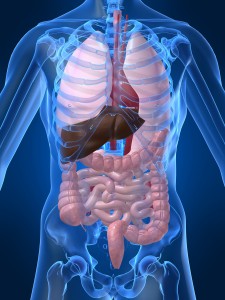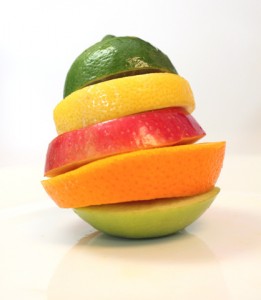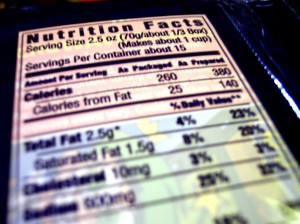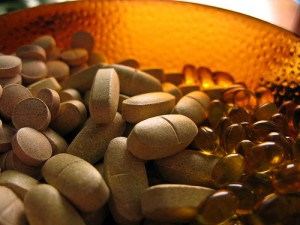Crohn’s disease is a chronic bowel disorder that causes damage to the intestinal tract, leading to vitamin deficiencies, severe stomach pains, diarrhea, and fever. Doctors recommend following a restrictive diet for treating Crohn’s disease, in addition to adopting a strict vitamin regimen. Here are the top 13 vitamins and minerals recommended for Crohn’s disease patients.
Vitamin B12
In order to digest vitamin B12 (cobalamin) from food sources, your body has to be able to make intrinsic factor, an enzyme produced in the stomach that aids in vitamin B12 absorption. Because Crohn’s disease destroys stomach tissue, it’s common for Crohn’s patients to acquire vitamin B12 deficiency, in addition to other nutritional deficiencies.
Symptoms of vitamin B12 deficiency include everyday fatigue, sluggishness, memory loss, painful tingling and numbness in your extremities (feet, hands, tongue), anxiety, and dizziness.
To find out if you have vitamin B12 deficiency, ask your doctor for a blood test to measure vitamin B12 levels.
Treatment requires non-dietary vitamin B12 supplements, usually from a vitamin B12 shot or alternative method.
Read Four Reasons to check your Vitamin B12 Levels with Crohn’s Disease
Folic acid
 Folic acid is another essential B vitamin; it’s crucial for preventing birth defects in utero. If you’re using the sulfa drug sulfasalazine for Crohn’s disease, then you are at high risk for developing folic acid deficiency. Experts recommend taking 1 mg of folic acid per day.
Folic acid is another essential B vitamin; it’s crucial for preventing birth defects in utero. If you’re using the sulfa drug sulfasalazine for Crohn’s disease, then you are at high risk for developing folic acid deficiency. Experts recommend taking 1 mg of folic acid per day.
Vitamin A
Because Crohn’s disease sufferers often have difficulty absorbing vitamin A from food, doctors highly recommend adding the A vitamin to your vitamin regimen.
Vitamin D
Experts have noted a high correlation of vitamin D deficiency among Crohn’s disease patients. Vitamin D deficiency causes bone loss, muscular soreness, and weakness. It’s also believed that vitamin D is essential for promoting immune system health. Sun exposure increases vitamin D levels, but supplements are also available.
Vitamin E
Vitamin E deficiency is high among Crohn’s patients who have difficulty eating foods like dark leafy greens and nuts. To avoid symptoms like muscular weakness, tingling, and numbness, experts recommend taking daily doses of vitamin E oil.
Vitamin K
Vitamin K occurs naturally in dark leafy veggies, and is essential for healthy blood clotting and bone strength. If you have difficulty absorbing fat-soluble vitamins, then you should include vitamin K in your daily vitamin therapy.
Iron
Iron anemia is a risk factor with Crohn’s disease, due to intestinal bleeding. Iron deficiency causes symptoms like extreme fatigue, paleness, and headaches. A blood test can determine if you have iron deficiency.
Calcium
Crohn’s disease increases your risk for calcium deficiency, especially if you are using corticosteroids as part of your immune system therapy. Additionally, vitamin B12 deficiency, common among Crohn’s patients, increases your risk for bone loss. Health experts recommend taking 1,000-1,200 mg of calcium supplements each day.
Magnesium
Crohn’s disease causes severe bouts of diarrhea, during which time high doses of magnesium are expelled rapidly. To prevent magnesium deficiency, experts recommend supplementing with extra magnesium, especially during flare-ups.
On the Run with Crohn’s? 6 Ways to Ease Public Restroom Anxiety
Zinc
Zinc supplies are also depleted with chronic diarrhea, making this another essential nutrient to take regularly if you have Crohn’s disease.
Probiotics
 Probiotics contain “good” bacteria that are helpful for boosting digestive health and preventing pouchitis, a common side effect resulting from pouch surgery. For best results, ask your gastroenterologist to recommend a specific bacterial strain.
Probiotics contain “good” bacteria that are helpful for boosting digestive health and preventing pouchitis, a common side effect resulting from pouch surgery. For best results, ask your gastroenterologist to recommend a specific bacterial strain.
Gut Bugs:Winning the Bacteria Battle
Omega-3 fatty acids
Omega-3 fatty acids, such as the kind found in fish oil, are helpful for fighting inflammation, a common side effect of Crohn’s disease.
Glutamine
Glutamine is an amino acid that promotes intestinal health. Many doctors advise taking 400 mg of glutamine, 4 times per day, for preventing Crohn’s disease symptoms.
Please tell us…
Do you have Crohn’s disease? If so, do you agree with these dietary recommendations? Do you use any vitamins that are not included in this list? Have you tested for vitamin deficiency, including vitamin B12 anemia?
Do you have any questions or suggestions? Please leave your comments below.
Share with your friends!
If you found this article helpful, then please share with your friends, family, and coworkers by email, Facebook, or Google+.
Read more about Crohn’s and vitamin B12:
Gastrointestinal Surgery for Crohn’s (IBD) and B12 Warnings
101 Helpful Sites for Kids ‘n Teens with Crohn’s (and their Parents)
Crohn’s- 9 Irritable Bowel Disease (IBD) Myths to Ignore
Sources:
10 Vitamins You May Need if You Have Crohn’s
10 Herbs and Vitamins That Are Good for Your Gut
Images: Lori Greig, cohdra, bradley j




